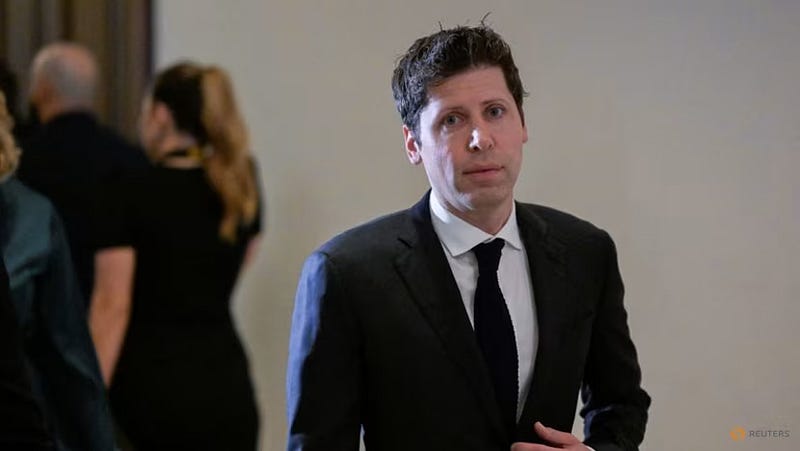Sam Altman's Potential Return to OpenAI: What You Need to Know
Written on
Chapter 1: The Unexpected Dismissal
On September 13, 2023, Sam Altman, the co-founder of OpenAI, attended a bipartisan Artificial Intelligence Insight Forum for all US senators, hosted by Senate Majority Leader Chuck Schumer at the Capitol in Washington. Just a day after his ousting, discussions between Altman and the OpenAI board about his potential return as CEO are ongoing. His unexpected firing on Friday surprised major investors, including Microsoft, who were taken off guard by the sudden decision.
Altman, who helped establish OpenAI in 2015 alongside Elon Musk and a group of AI experts, has been a prominent figure in the industry, notably credited with the development of ChatGPT. Microsoft reaffirmed its commitment to its partnership with OpenAI but expressed shock at the board's abrupt move to remove Altman, leaving the company's trajectory uncertain amidst fierce competition from AI platforms like Google Bard and xAI.
According to reports from The Verge, Altman is contemplating a return to the role of CEO but is seeking significant changes in governance before agreeing to rejoin the company.
Section 1.1: The Board Members Behind the Decision
The decision to terminate Sam Altman was made by four board members:
- Helen Toner — As the Director of Strategy and Foundational Research Grants at Georgetown’s CSET, Toner is an expert on the AI landscape in China and joined the OpenAI board in September 2021.
- Adam D’Angelo — The CEO of Quora and a proponent of OpenAI’s capped-profit model. D’Angelo has been on the board since April 2018 and developed the ‘Poe’ chatbot app.
- Tasha McCauley — An adjunct senior management scientist at RAND Corporation and a co-founder of Fellow Robots and GeoSim Systems. McCauley signed the Asilomar AI Principles, advocating for responsible AI governance.
- Ilya Sutskever — A co-founder of OpenAI and chief scientist, Sutskever is noted for his contributions to neural networks and leadership in the AlphaGo project.
Subsection 1.1.1: A Unique Governance Model

Unlike conventional corporations, OpenAI's board does not prioritize shareholder profits. In fact, none of the board members own shares in the organization. Their mission centers on ensuring that artificial general intelligence (AGI) is developed to benefit humanity as a whole rather than a select few.
This philosophy diverges significantly from traditional business practices, where boards are often tasked with maximizing shareholder value, sometimes at the expense of other stakeholders, including employees and the environment. The OpenAI board is deeply committed to this mission, collaborating with top experts in AI to establish guidelines and safeguards that ensure AGI serves the broader good.
Chapter 2: The Road Ahead
OpenAI's leadership transition presents a critical juncture for the organization. As discussions unfold, the implications of Altman's potential return could reshape the company's strategy and vision for the future.
This video discusses Sam Altman's surprising talks to return to OpenAI, exploring the reasons behind his initial departure and the implications for the company moving forward.
In this video, insights are shared on Sam Altman's anticipated return to OpenAI as CEO, highlighting the formation of a new board and the potential impact on the AI landscape.